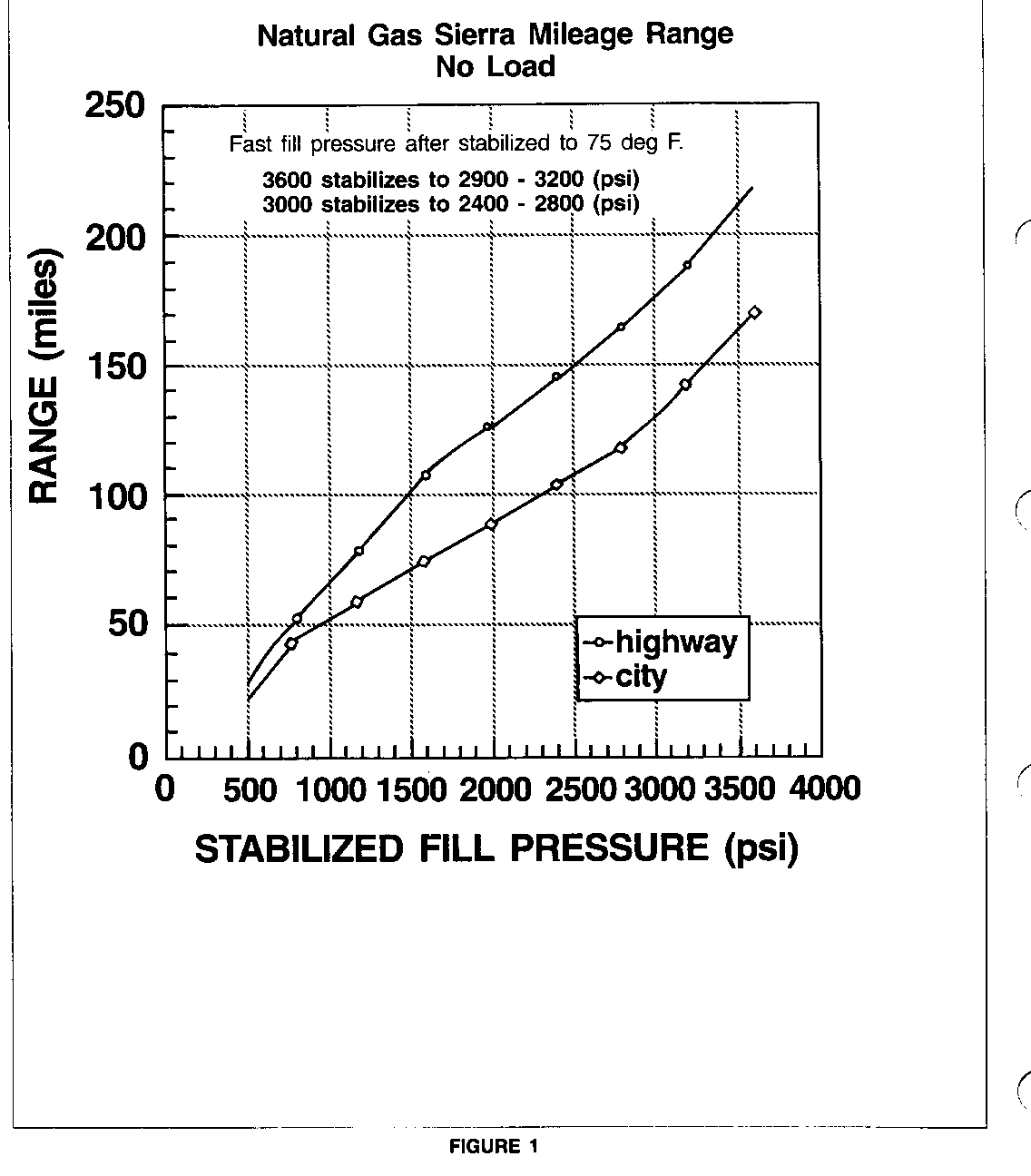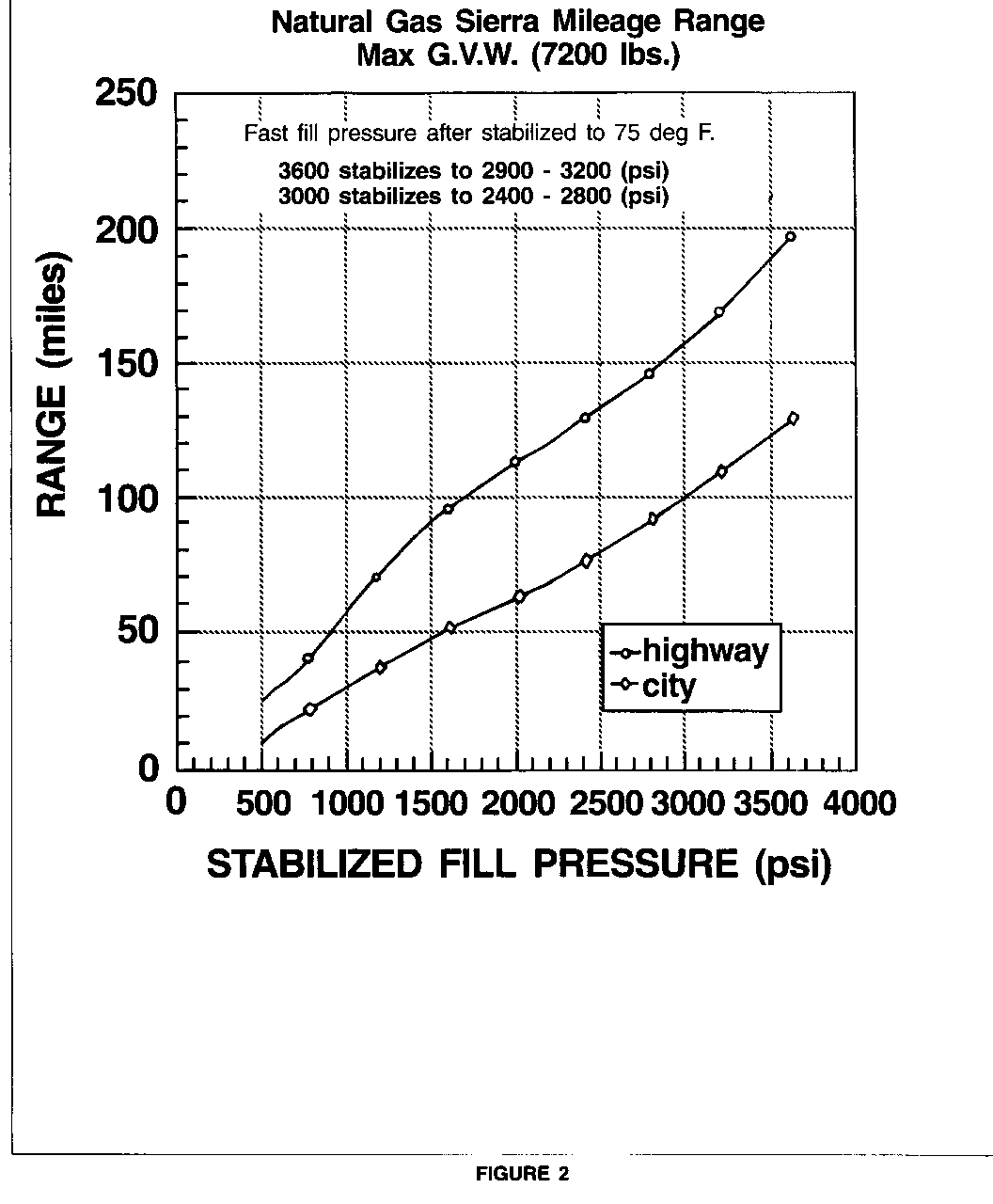NGV FUEL CONSUMPTION/DRIVING RANGE (INFORMATIONAL)

SUBJECT: NATURAL GAS VEHICLE FUEL CONSUMPTION/DRIVING RANGE
MODEL and YEAR: 1992-93 C1 AND C2 TRUCKS
Some operators of Natural Gas Vehicles (NGV) may comment on what may be perceived as poor fuel economy and/or short driving range. The attached charts represent actual fuel range of both an unloaded (Figure 1) and a loaded (Figure 2) natural gas fueled Chevrolet full size 2 wheel drive pickup truck. These ranges were determined with empty being approximately 300 to 350 PSI.
A noticeable deterioration in full throttle performance will occur at approximately 350 PSI of fuel and below.
When evaluating fuel consumption, the weight of the load, driving habits of the operator, ambient temperature, altitude, and the route (City- Stop and Go vs Highway speeds) all affect the rate of fuel consumption.
Also note that the fill pressure when fast filled will decrease after a period necessary for the fuel to cool down to ambient temperatures. If possible, fill the vehicle in the evening and top it off in the morning. This method will maximize the fuel capacity of the system.
The fuel capacity for this vehicle at 3600 PSI is equal to approximately 11.2 gallons of gasoline. If the fuel pressure of the filling station is any less than 3600 PSI then the fuel range will be reduced. 3000 PSI is equivalent to 9.3 gallons and 2400 PSI is equivalent to 7.5 gallons.


General Motors bulletins are intended for use by professional technicians, not a "do-it-yourselfer". They are written to inform those technicians of conditions that may occur on some vehicles, or to provide information that could assist in the proper service of a vehicle. Properly trained technicians have the equipment, tools, safety instructions and know-how to do a job properly and safely. If a condition is described, do not assume that the bulletin applies to your vehicle, or that your vehicle will have that condition. See a General Motors dealer servicing your brand of General Motors vehicle for information on whether your vehicle may benefit from the information.
